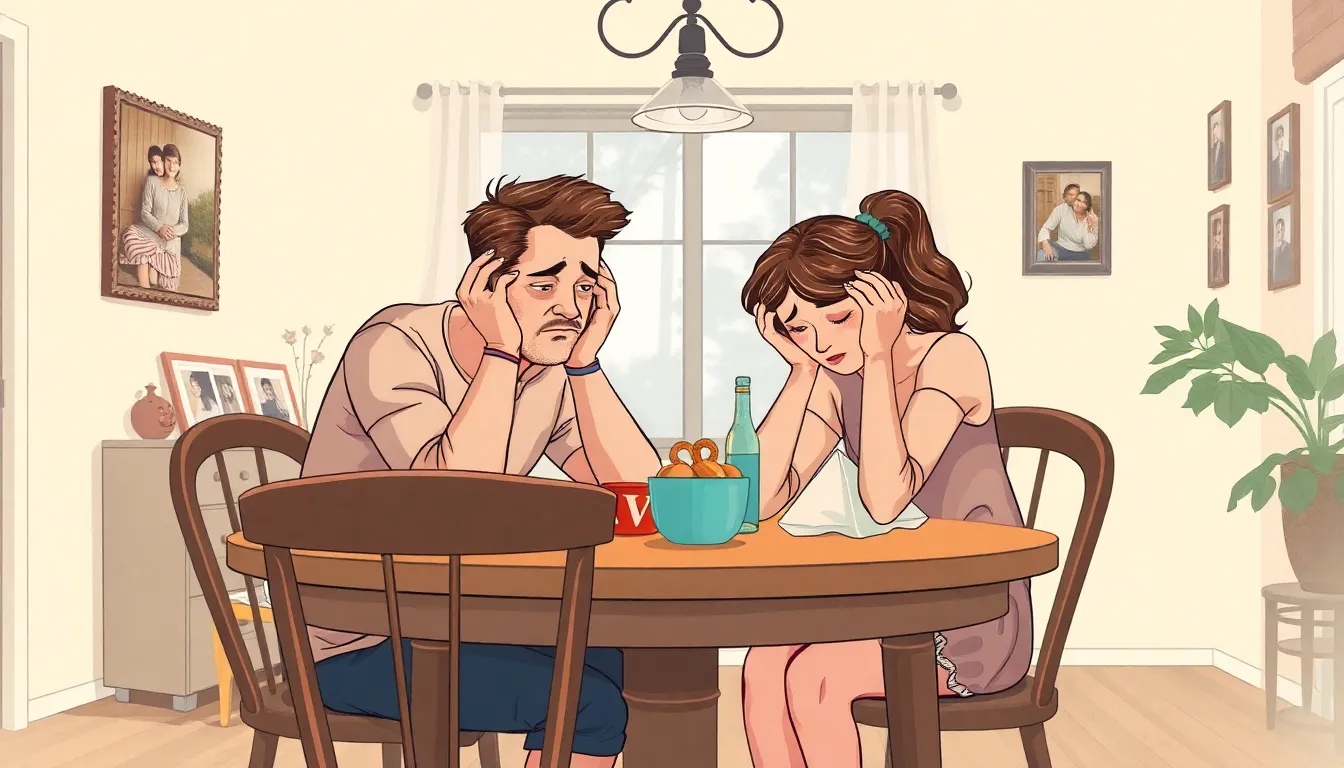Table of Contents
ToggleNavigating the world of relationships can feel like a minefield, especially with the avalanche of advice out there. Some of it’s golden, but much of it? Let’s just say it’s like trying to fix a leaky faucet with bubble gum. From “just ignore your partner’s flaws” to “never go to bed angry,” bad relationship advice can lead to more chaos than clarity.
Understanding Bad Relationship Advice
Navigating relationship advice can be challenging. Many phrases sound practical but don’t enhance understanding or communication.
Common Myths in Relationships
Certain myths often circulate in relationship discussions. One prevalent myth suggests ignoring flaws strengthens a bond. This belief undermines the importance of transparency. Another common myth emphasizes never going to bed angry, which can escalate unresolved conflicts. Seeking resolution in a productive way is more beneficial. Additionally, ideas like “opposites attract” can perpetuate misunderstandings. Couples often benefit from shared values and interests. Disregarding these myths can clarify what truly contributes to healthy relationships.
Identifying Toxic Advice
Recognizing toxic advice can empower individuals. Phrases like “just change for them” or “don’t express your feelings” often lead to further resentment. Advice that discourages open communication creates barriers to understanding. Relationship guidance should never promote emotional suppression. Recommendations such as “play hard to get” often manipulate feelings and trust. These types of strategies typically erode connection rather than build it. Effective advice should facilitate healthy dialogues and encourage authenticity. Maintaining awareness of toxic statements fosters healthier relationship dynamics.
The Consequences of Bad Relationship Advice

Bad relationship advice can lead to serious emotional consequences and long-term damage. Misguided suggestions often exacerbate issues rather than resolve them, creating further tension.
Emotional Impact
Emotional turmoil arises when partners follow ineffective advice. Ignoring flaws can cause resentment to build, leading to bitterness. Individuals may feel compelled to suppress feelings to fit a misguided narrative. Dysfunction often becomes normalized, affecting overall mental well-being. Long-lasting guilt can stem from ineffective communication methods pushed by this advice. Ultimately, unhealthy patterns can emerge, damaging self-esteem and perpetuating negative feelings toward the relationship.
Long-Term Relationship Damage
Bad advice can inflict lasting harm on relationships. Risking open communication stifles intimacy and trust. Distrust can easily grow when partners avoid discussing their true feelings. Individuals may find themselves emotionally distant after continuously disregarding genuine concerns. Misconceptions about love, such as the belief that opposites attract, can foster misunderstandings that erode unity. Seeking validation through unproductive methods can lead to irreparable fractures in the partnership.
Real-Life Examples of Bad Relationship Advice
In many relationships, misguided suggestions contribute to confusion and distress. Below are some notable examples.
Misguided Suggestions
Misguided suggestions create more problems than they solve. One common piece of advice is to ignore a partner’s flaws, fostering resentment over time. This approach encourages individuals to accept unsatisfactory behavior instead of addressing concerns. Another harmful suggestion is the idea that love conquers all, which often ignores the necessity for communication and compromise. Such notions dismiss the reality that relationships require effort and honesty to thrive. Miscommunication grows when individuals suppress feelings due to bad advice, leading to emotional detachment. Ultimately, these misguided suggestions can damage relationships instead of strengthening them.
Cultural Influences
Cultural influences shape perceptions of relationships and can promote bad advice. In some cultures, the idea of enduring hardship for the sake of love prevails, leading individuals to tolerate unhealthy dynamics. Some cultures may glorify the concept of “never show weakness,” discouraging vulnerability and honest communication. Advice like “let it go for peace” often ignores legitimate feelings, resulting in unresolved issues. Pride in cultural traditions can sometimes prevent individuals from seeking necessary help, reinforcing toxic relationship patterns. These cultural narratives often validate harmful behaviors, hindering personal growth and relational harmony. Such influences contribute to the cycle of bad advice in relationships.
How to Spot Good Relationship Advice
Identifying good relationship advice requires attention to certain characteristics and sources. Effective guidance often emphasizes communication and mutual respect. Good advice promotes understanding rather than division. It acknowledges that every relationship is unique and solutions must be tailored. Sound guidance encourages individuals to express their emotions openly.
Key Indicators of Sound Advice
Specific qualities mark reliable relationship advice. Valid recommendations come from professionals with expertise, such as therapists and psychologists. Trustworthy advice avoids blanket statements and recognizes individual experiences. Additionally, it encourages healthy conflict resolution while promoting emotional safety. When advice prioritizes personal growth over conformity, it gains credibility. Experts often highlight the importance of self-awareness and empathy in healthy relationships.
Resources for Healthy Relationships
Numerous resources offer support for individuals seeking sound relationship advice. Counseling services provide expert guidance tailored to specific situations. Support groups foster discussions and shared experiences among peers. Books by relationship experts often present valuable insights and proven techniques. Online forums can facilitate conversations about relationship challenges, although verifying the credibility of sources is essential. Workshops and seminars led by professionals serve as practical platforms for learning effective strategies and communication techniques.
Navigating relationship advice can be a tricky endeavor. Misguided suggestions often lead to confusion and emotional turmoil that can undermine the foundations of a partnership. Recognizing bad advice is crucial for fostering healthy dynamics and open communication.
It’s vital to seek guidance that emphasizes respect, vulnerability, and understanding. By prioritizing sound advice from professionals and focusing on the unique aspects of each relationship, individuals can cultivate stronger connections. Ultimately, embracing authentic communication and rejecting toxic narratives is key to building lasting and fulfilling relationships.




